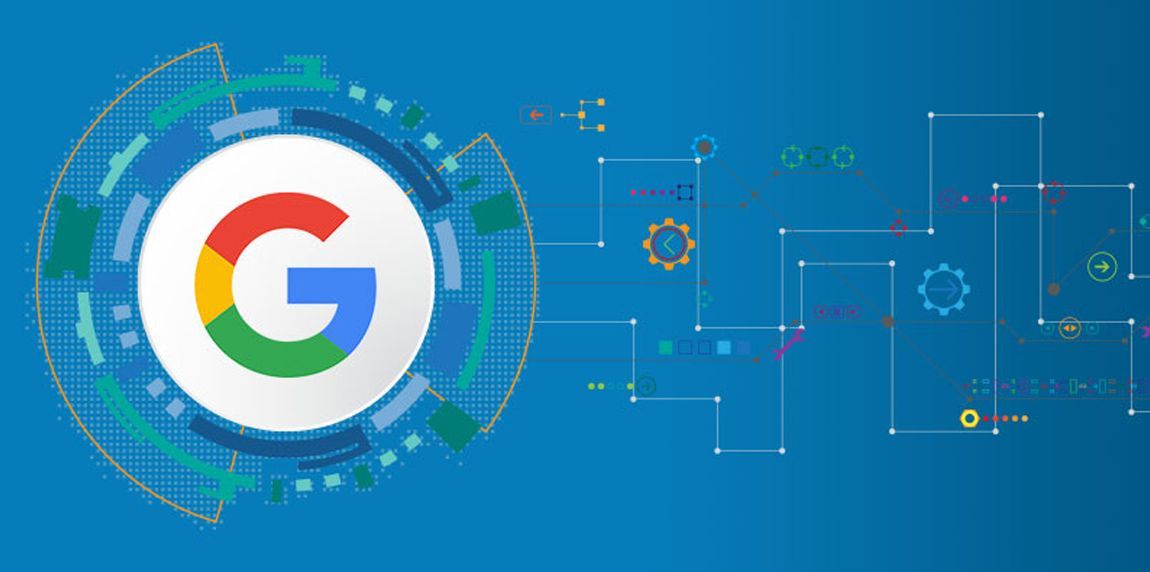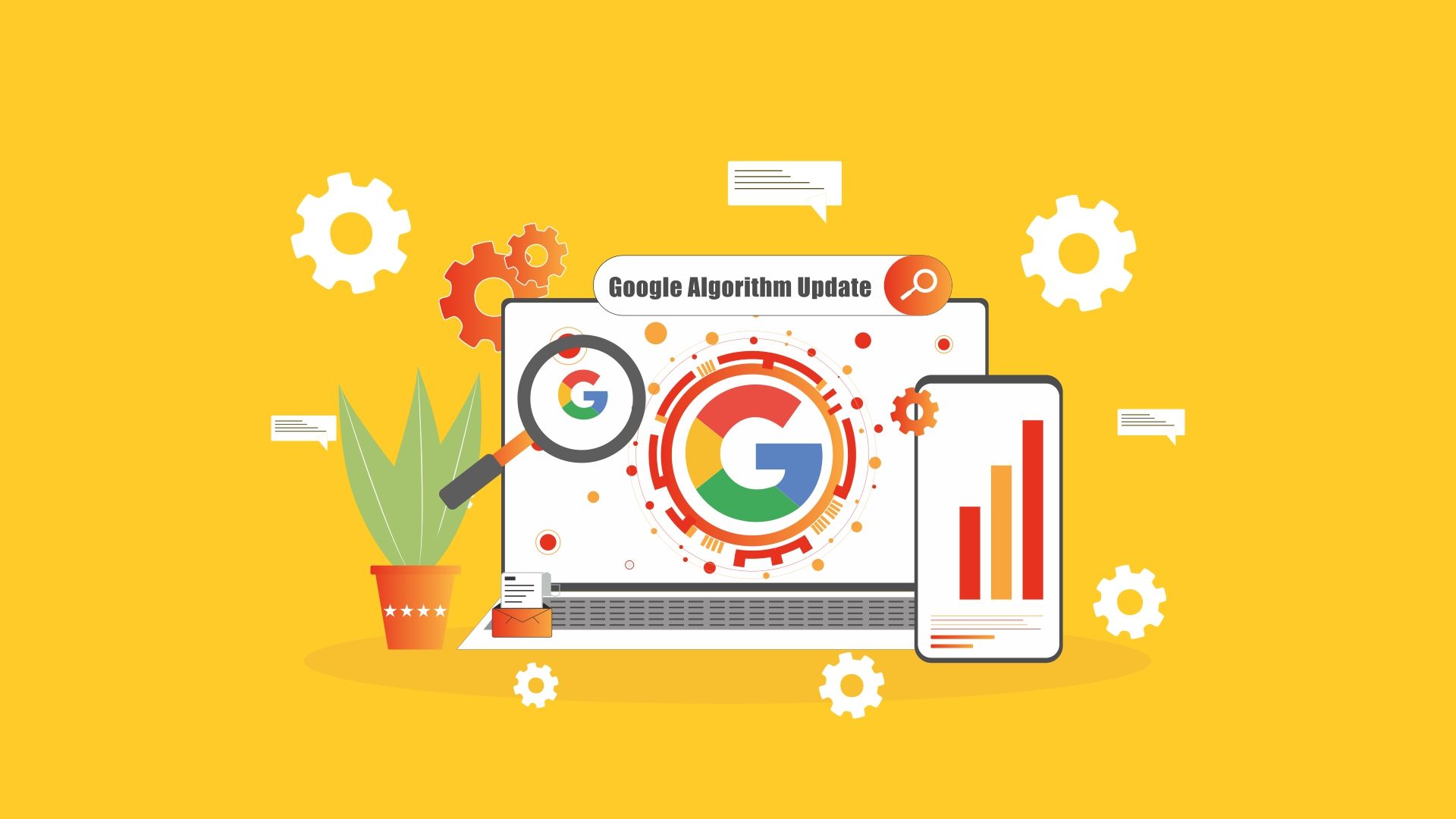Essential Guide to Google Algorithm Updates: What You Need to Know
Google’s algorithm updates, specifically “Google Algorithm Updates: What You Need to Know,” are crucial for your website’s search performance. This guide will help you understand the essential aspects of these updates, how frequently they occur, and what you can do to adapt your SEO strategy.
Key Takeaways
Google’s algorithms undergo more than 3,200 updates annually, with significant core updates occurring several times a year that can drastically affect search rankings.
Website owners must prioritize content quality and user experience to align with Google’s evolving criteria, as recent updates emphasize high-quality, user-centric content.
Staying informed about Google algorithm changes through analytics tools and industry resources is vital for website owners to adapt their SEO strategies effectively.
Frequency of Google Algorithm Updates
Google algorithm updates occur frequently and are often unpredictable, reflecting Google’s relentless commitment to enhancing user experience and providing better search results. On average, Google makes over nine changes to its algorithms each day, adding up to more than 3,200 annually. In 2023 alone, Google launched 4,781 changes to its search algorithms, underscoring the sheer volume and frequency of these google’s algorithm updates. These updates range from minor tweaks to major overhauls that can significantly impact search rankings.
Core updates, in particular, are significant changes that profoundly affect search rankings and occur several times a year. These updates aim to improve the relevance and quality of search results, making it essential for website owners to stay informed and adapt their SEO strategies accordingly.
The continuous nature of Google’s updates, whether minor or major, highlights the importance of maintaining a flexible and responsive SEO approach.
Daily Adjustments
Google’s algorithm updates aren’t limited to just a few significant changes each year. Instead, the search giant implements frequent updates throughout the day, making over 3,200 changes annually, which averages out to about 13 changes per day. In 2022, for instance, Google made a total of 4,725 changes to its search algorithm, reflecting the continuous refinement of its search engine capabilities. These daily adjustments include everything from minor tweaks to broad core algorithm updates, which are made several times throughout the year.
The Fritz update introduced daily index updates, enhancing the frequency of adjustments and ensuring that Google’s search results remain current and relevant. Additionally, Google runs more than 600,000 experiments each year to evaluate new features and functionalities, further emphasizing the dynamic nature of its search algorithms.
These daily adjustments ensure that users receive the most relevant and helpful mobile search results, reflecting Google’s commitment to continuous improvement.
Core Updates Schedule
Core updates from Google are generally released a few times a year, significantly influencing search rankings. Typically, these core updates are scheduled strategically throughout the year to ensure that search results remain relevant and high-quality. For example, the December 2024 Core Algorithm Update began rolling out on December 12, 2024, and was completed in just six days. These updates are extensive and can cause significant shifts in search rankings, which makes it crucial for website owners to stay vigilant and adaptable.
The broad core algorithm updates are designed to improve Google’s overall understanding of content quality and relevance, affecting a wide range of websites. Each core update is meticulously planned and tested to ensure it enhances the user experience by surfacing the most helpful and relevant content. These updates often focus on addressing issues identified in previous core updates, continuously refining Google’s approach to ranking content.
Website owners must pay attention to these core updates as they can dramatically impact search performance. The introduction of core web vitals, for instance, underscores the importance of user experience metrics in these updates. By understanding the schedule and focus of core updates, businesses can better prepare and adapt their SEO strategies to maintain or improve their search rankings.
Spam and Minor Updates
Spam updates are periodic adjustments from Google aimed at reducing low-quality content, link spam, and other manipulative practices. These updates are crucial for maintaining the integrity of search results by penalizing websites that engage in unethical SEO tactics. Recent spam updates have specifically targeted issues such as link spam, content spam, and the abuse of expired domains. For instance, the June 2024 spam update took a full week to roll out, while the October 2023 update was launched on October 4, highlighting the varied rollout times of these updates.
These spam updates often lead to notable fluctuations in website rankings, particularly affecting niches like health and finance. By targeting low-quality content and manipulative practices, Google ensures that its search results remain trustworthy and relevant.
For website owners, staying compliant with Google’s guidelines and focusing on creating high-quality, valuable content is essential to avoid penalties from these updates.
Recent Major Google Algorithm Updates

In the ever-evolving landscape of SEO, staying abreast of recent major Google algorithm updates is essential. These updates often bring significant changes to search rankings, reflecting Google’s ongoing efforts to improve search quality and relevance. The August 2023 broad core update, for instance, aimed to enhance overall search quality and relevance, leading to fluctuations in site performance. Similarly, the November 2023 Reviews Update targeted review content on a page-level basis, assessing the quality and relevance of reviews.
Understanding the specifics of recent updates is crucial for adapting SEO strategies. The December 2022 Helpful Content Update, for example, rewarded helpful content and penalized low-quality or spammy content, significantly impacting search rankings. Recent updates have underscored the importance of high-quality content, user experience, and adherence to SEO best practices.
March 2025 Core Update
The March 2025 core update was a significant milestone in Google’s algorithm evolution, announced on March 13, 2025. This update took 14 days to roll out, with peak volatility observed on March 14-16, March 20-22, and March 26. One of the key features of this update was the introduction of a new helpful content system, which aimed to improve content quality across the board. The health sector and finance industry experienced the most ranking fluctuations during this update, reflecting its broad impact on these sensitive niches.
Website owners affected by the March 2025 core update should rely on Google Search Console data to understand changes in their search performance. This update highlights the importance of maintaining high-quality content and staying informed about Google’s evolving criteria for ranking.
December 2024 Core Update
The December 2024 core update, categorized as a typical core update, began rolling out on December 12, 2024, and was completed in just six days. This update led to notable drops in website traffic for many sites, underscoring its significant impact on search rankings. Following this update, Google announced that more frequent core updates could be expected, marking a shift towards even more dynamic adjustments.
Historically, core updates occur a few times each year, each bringing significant changes to search rankings. The December 2024 core update is part of an evolving pattern where significant changes in search rankings are noted, highlighting the need for continuous SEO vigilance and adaptation.
November 2024 Core Update
The November 2024 core update was another significant event in Google’s algorithm history, rolled out from November 11 to December 5. This update took 23 days for full rollout and was characterized by typical core update features with no specific targeting observed. Interestingly, the update was noted to be less volatile than previous core updates, providing a somewhat smoother transition for website owners.
However, the impact was still significant, as one Reddit user reported a 50% drop in impressions and clicks following the update. Additionally, there was an overlap noted between organic search results and citations in Google’s AI Overviews, reflecting the update’s broader implications.
Manual actions during the update led to the removal of some sites from SERPs, emphasizing the importance of compliance with Google’s guidelines.
Key Focus Areas of Google’s Algorithm Updates

Google’s algorithm updates consistently focus on enhancing search quality by rewarding valuable content and improving user experience. For instance, the May 2015 Quality Update targeted sites with low-quality content and unnatural linking practices, while the Helpful Content Update from 2022 penalized websites created solely to improve ranking without providing value. These updates highlight Google’s commitment to surfacing original, useful content and ensuring that search results meet user expectations.
The March 2024 update, for example, focused on promoting AI-generated content that meets quality standards, reflecting Google’s adaptability to emerging technologies. By targeting improvements to the relevance of search results, Google’s updates ensure that users find the most helpful and accurate information.
Understanding these key focus areas can help website owners align their SEO strategies with Google’s evolving criteria.
Content Quality
The emphasis on content quality is a recurring theme in Google’s algorithm updates. The August 2022 Helpful Content Update, for instance, aimed to reward user-first content and SEO best practices, focusing on content that genuinely helps users. Since these updates, there has been an increased focus on user-centricity in ranking algorithms, underscoring the importance of high-quality content. The July 2022 Product Reviews Update emphasized helpful content as a ranking signal, ensuring that high-quality product reviews are prioritized in search results.
Google assesses the usefulness of information from websites by determining if content is independent from the main content and truly valuable. The E-E-A-T (Expertise, Authoritativeness, and Trustworthiness) framework is critical in evaluating content quality, as highlighted by the June 2019 Core Update.
Routine assessments and improvements of content can help site owners demonstrate to Google that their content deserves to rank well.
User Experience
Optimizing for mobile devices is crucial, as Google prioritizes mobile-friendly sites to improve user interactions. Google’s updates emphasize fast loading times and mobile usability, which are essential for enhancing user experience. Core Web Vitals metrics, such as loading speed, interactivity, and visual stability, are considered vital for evaluating page experience in updates.
Tools like TinyPNG and the WebP format can improve load time by optimizing images without compromising quality, contributing to a better user experience. PageSpeed Insights reports can help identify technical SEO problems affecting loading speed, ensuring that websites meet Google’s performance standards.
To enhance user experience on a website, it’s important to avoid heavy visuals and distracting ads, ensuring smooth navigation and quick answers to users’ queries. These elements are key to aligning with Google’s focus on user experience in its algorithm updates.
Combatting Spam
Google’s algorithm has been trained to identify mismatches between the version of the site shown to Google and what users see, effectively combating manipulative practices. The link spam update, for instance, aims to reduce the visibility of content that results from manipulative practices, such as sponsored, guest, and affiliate content. These updates highlight Google’s commitment to maintaining the integrity of its search results by penalizing spammy and low-quality content.
The December 2024 spam update, for example, targeted link spam and low-quality websites, reinforcing the importance of adhering to ethical SEO practices. Google’s core updates suggest that shortcuts and gimmicks in SEO are ineffective against genuine quality content, emphasizing the need for high-quality, valuable content to succeed in search rankings.
Impact of Google Algorithm Updates on SEO
Google’s algorithm updates can result in significant swings in rankings, directly affecting a website’s traffic and revenue. Changes in rankings often reflect a shift in focus towards content quality, relevance, and user experience as highlighted by the updates. Maintaining SEO presence amid Google’s frequent algorithm changes requires continuous updates to SEO strategies. Website owners are encouraged to create and publish quality content to align with Google’s expectations post-update.
User feedback can be utilized to enhance website adjustments in response to algorithm updates. Reviewing site analytics is crucial for identifying areas needing improvement following Google algorithm updates. Measurement of rankings, rather than just traffic, is essential to assess the impact of specific algorithm updates.
Content creators are rewarded through Google’s algorithm updates, which reinforces the need for high-quality, relevant information.
Ranking Fluctuations
The December 2024 core update, for instance, led to drastic drops in traffic for many websites, reflecting the significant impact of such updates on search rankings. This update had a greater impact than the November 2024 core update. However, it was not as significant as the updates from August or March 2024. Following these updates, websites can experience varying degrees of impact, including significant drops in impressions and clicks. According to Elizabeth Tucker, these updates can lead to radical ranking fluctuations, affecting website visibility and traffic.
Recovery from a major algorithm update can take from a few weeks to a few months, and sometimes even up to a year. Signs of ongoing algorithm updates include SERP volatility, which can indicate upcoming ranking changes. Following major updates, websites may also face permanent drops in rankings or traffic losses, emphasizing the importance of staying informed and adaptable.
Importance of Adaptation
To align with Google’s evolving algorithm criteria, website owners must regularly enhance their content and SEO practices. Using structured data can enhance search visibility and click-through rates, helping websites stay competitive. Following a core update, it’s crucial for website owners to analyze the impact and plan for recovery by improving or removing low-quality content, conducting a link profile audit, and strengthening trust and authority signals.
Additionally, adhering to Google’s Webmaster Guidelines helps site owners assess and improve content for better ranking. Producing high-quality content is crucial following major updates, as it aligns with Google’s emphasis on user satisfaction. Answering users’ questions early in the content structure can also increase search satisfaction, ensuring that websites meet Google’s evolving standards.
Monitoring and Analysis
Setting up alerts in Google Analytics can help monitor sudden changes in site traffic, enabling website owners to respond quickly to any issues. Regularly conducting content audits helps identify pages affected by algorithm updates and understand trends in search performance. These audits can reveal patterns and provide insights into how updates impact site metrics, guiding necessary adjustments.
Continuous monitoring of search performance allows website owners to analyze the impact of updates and optimize their SEO strategies accordingly. Leveraging data analytics helps identify areas for improvement, ensuring that websites remain aligned with Google’s search algorithms.
Staying informed through tools like Google Search Console and Google Search Central Blog provides updates and insights about algorithm changes, helping website owners stay ahead of the curve.
How to Prepare for Future Google Algorithm Updates

Preparing for future Google algorithm updates involves creating helpful content and building relationships to align with updates. The goal is to focus on creating unique and valuable content to ensure visibility in search results. Google Search’s helpful content system aims to prioritize original, helpful content written for people, emphasizing the importance of user-centricity in SEO strategies.
Website owners should continuously improve their website and content according to SEO best practices to remain competitive. Conducting thorough content audits can help identify affected pages and patterns related to update impacts, ensuring that websites remain relevant and high-quality.
To minimize volatility during Google’s algorithm updates, website owners should adjust their SEO strategies based on updates, focusing on maintaining compliance with Google’s guidelines.
Staying Informed
Staying informed about Google’s algorithm updates is crucial for maintaining and improving SEO performance. Subscribing to SEO newsletters can provide timely updates on Google’s algorithm changes, helping website owners stay ahead of the curve. Joining SEO forums can facilitate discussions and insights about recent algorithm updates, offering valuable perspectives from the SEO community.
Regularly checking these resources ensures that website owners remain aware of changes that could affect their website’s performance. By staying informed, website owners can proactively adjust their strategies to align with Google’s evolving criteria, ensuring sustained search performance and visibility.
Best Practices for SEO
People-first content should be prioritized to align with Google’s criteria for quality. High-quality reviews should demonstrate expertise, provide evidence, and discuss both benefits and drawbacks, enhancing their effectiveness in search algorithms. Providing comprehensive coverage of key topics and unique data can further enhance content effectiveness, ensuring that it meets Google’s standards for high-quality content.
Poor content quality negatively affects search rankings, underscoring the necessity for continuous evaluation and improvement. Keyword optimization helps align content with search engine understanding, enhancing its semantic relevance and visibility.
Linking from high-authority pages to underperforming ones can help improve their visibility, ensuring that all content meets Google’s quality criteria.
Utilizing Tools and Analytics
Utilizing tools like Google Search Console and Google Analytics is crucial for tracking website performance effectively. Continuous monitoring of search performance allows website owners to analyze the impact of updates on site metrics, providing insights into necessary adjustments. Leveraging data analytics helps identify areas for improvement, ensuring that SEO strategies remain aligned with changing algorithms.
Staying informed through tools like Google Search Central Blog provides updates and insights about algorithm changes, helping website owners stay ahead of the curve. By utilizing these tools and analytics, website owners can optimize their SEO strategies and maintain compliance with Google’s search algorithms, ensuring sustained search performance and visibility.
Historical Overview of Google Algorithm Updates
Google’s algorithm updates have significantly evolved since 2010, impacting search rankings and SEO strategies. The evolution and updates in Google’s algorithm require website owners to adapt their SEO strategies to retain visibility and traffic, reflecting the dynamic nature of the digital landscape. Understanding the historical context of these updates can provide valuable insights into their impact and significance.
For instance, the November 2024 core update was launched from November 11 to December 5, with its impact being less volatile compared to some previous updates. The rollout lasted 24 days, highlighting the extensive nature of these updates and their influence on search rankings.
By examining the historical overview of Google’s algorithm updates, website owners can better understand the trends and patterns that shape the digital landscape.
Early Updates (2010-2015)
The early updates between 2010 and 2015 laid the foundation for Google’s evolving algorithm. The Google Panda algorithm update, launched to target thin content and improve content quality across search results, was a significant milestone. By May 2014, there had been at least 25 updates to the Panda algorithm, continuously refining its approach to content evaluation. The July 2015 Panda 4.2 update impacted 2-3% of English queries, signaling ongoing adjustments in Google’s content quality assessments.
The final Penguin update in September 2016 shifted its focus from penalizing entire sites to assessing individual pages for quality and compliance, reflecting Google’s evolving approach to SEO. The Venice update released in January 2012 allowed smaller businesses to compete better by improving local search relevance and ranking opportunities. The April 2015 Mobilegeddon update rewarded mobile-friendly websites, improving user experience by boosting their visibility in search results. As part of the continued emphasis on user experience, the May 2016 Mobile-friendly 2 Update targeted websites neglecting mobile-friendly practices.
The MayDay update in April 2010 focused on enhancing search results by better assessing sites for long-tail queries, while the Hummingbird update in September 2013 improved understanding of user intent, thereby enhancing the overall quality of search results. The June 2013 Payday Loan Update affected about 0.3% of search requests in the U.S., targeting low-quality content related to payday loans.
These early updates set the stage for more sophisticated algorithm changes in the coming years.
Mid-Decade Changes (2016-2020)
The mid-decade changes between 2016 and 2020 marked significant advancements in Google’s algorithm. RankBrain began to roll out in October 2015, greatly enhancing Google’s ability to interpret search queries and providing more relevant search results. By 2016, RankBrain was used to interpret all search queries, reflecting its full integration into Google’s algorithm and its significant impact on search result relevance.
Another major update during this period was the BERT update, introduced in October 2019. BERT focused on enhancing the understanding of natural language and context in search queries, significantly improving Google’s ability to understand user intent. The BERT update affected approximately 10% of search queries, highlighting its broad impact on search results and its role in refining Google’s search algorithms.
Recent Developments (2021-Present)
Recent developments in Google’s algorithm updates from 2021 to the present have continued to prioritize user experience and search relevance. The Page Experience Update, introduced in June 2021, emphasized factors like loading speed and mobile-friendliness, reflecting Google’s focus on user experience. Tools such as the Page Experience report and Search Performance report were introduced to help webmasters improve site metrics, ensuring that websites meet Google’s performance standards.
The MUM (Multitask Unified Model), introduced in May 2021, is designed to understand complex queries and provide better, more contextual answers, reflecting Google’s adaptability to emerging technologies. The November 2021 Local Search Update aimed to enhance local search results, further improving the relevance and accuracy of search results for users.
These recent developments highlight Google’s ongoing commitment to refining its algorithms in light of the google algorithm update to better serve users and improve search quality.
Summary
In conclusion, understanding Google algorithm updates is crucial for maintaining and improving SEO performance. These updates, whether minor or major, reflect Google’s commitment to enhancing search quality and user experience. Staying informed about these updates, adapting SEO strategies, and focusing on high-quality content can help website owners navigate the dynamic digital landscape.
By leveraging tools and analytics, conducting regular content audits, and adhering to SEO best practices, website owners can remain competitive and ensure sustained search performance. As Google continues to refine its algorithms, staying ahead of these changes will be essential for maintaining visibility and relevance in search results. Embrace these updates as opportunities to improve and evolve, ensuring that your website remains a valuable resource for users.


